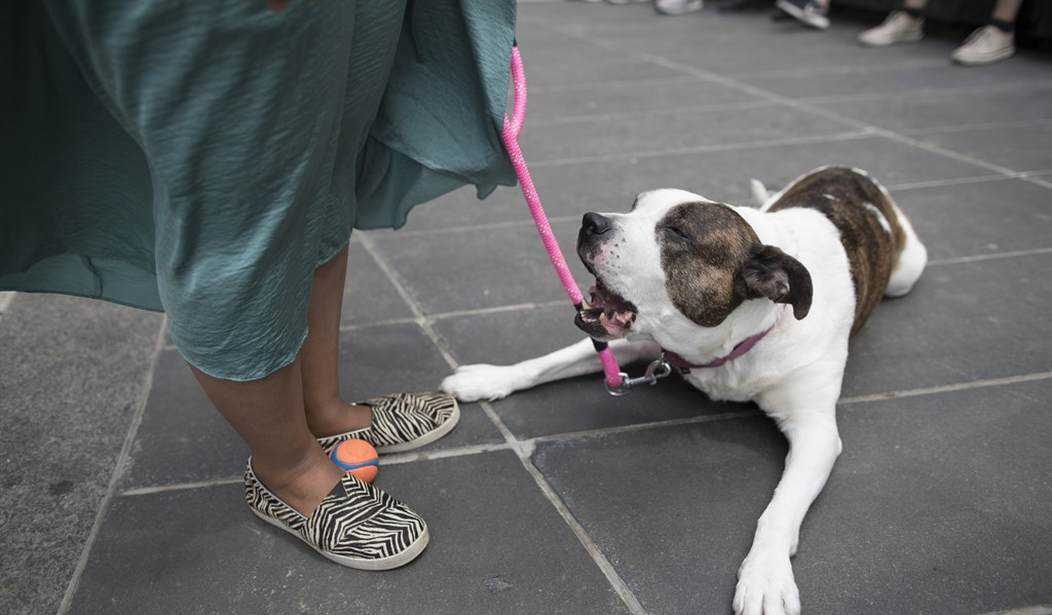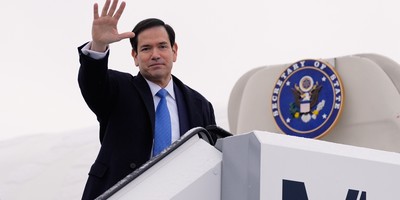In what sounds like the premise of a bad “Saturday Night Live” sketch, New York City Mayor Bill de Blasio recently stepped up enforcement of a long-established, but little noticed regulation that may actually make it more difficult for New Yorkers to care for a friend’s pet without the government’s permission. Yes, seriously.
It’s a scenario of Big Brother run amok that not even George Orwell could have imagined.
This new push to enforce the regulation follows the increasing popularity of pet-sitting apps like Rover that allow users to find a pet-sitter, or sign up themselves to care for another person’s pet. It’s an arrangement that works well for pet-owners who are looking for an alternative to traditional kennels that can cost a lot more and typically confine dogs in cages for longer spells. And for pet sitters, these apps are a convenient way to make some extra income.
Like other sharing services like Uber and Airbnb, which rely on feedback from users, Rover allows pet owners to rate dog sitters. They can even request to see the dog sitter’s apartment before handing over their pet to a stranger.
Pet ownership is big, especially among young people, who are in some cases choosing to become pet owners before starting a family or buying a home. With more than 95,000 Rover users registered in New York City, it’s clear that there is a sizable market for this service.
In response to this demand, local administrators are offering up a laughable excuse that proper licensing is required to “ensure the health and safety of pets and reduce the risks to public health.” Maybe, but if kindheartedness alone is driving big-government bureaucrats to push for these heavy-handed regulations, why not enact laws that reflect the new reality that some pet-owners are choosing more informal arrangements than the traditional kennel? Other states, including Colorado, are doing precisely that.
Recommended
The real reason central planners oppose sites like Rover, Airbnb and Uber is twofold. The first is that these informal arrangements are hard to tax and regulate. And the second is that government regulations limit competition and protect the interests of taxi medallion companies, labor unions and licensing boards that wield considerable power in a city like New York.
When this happens, consumers lose out in multiple ways, including paying over 15 percent more for services requiring an occupational license, according to one estimate.
And then there’s the impact on job creation. As the number of Americans who require a license to work has grown exponentially in recent years – from about one in 20 during the 1950s to almost one in four today – it has become more difficult for many job-seekers to enter the workforce. Scholars at the Brookings Institution sum it up this way: “By erecting a barrier to entry into an occupation, occupational licensing can slow job growth and limit employment opportunities.”
Sites like Rover can help those struggling to make ends meet by providing new and innovative ways to work and earn extra income. In a place like New York, where the cost of living can be prohibitive for many, the sharing economy can be a godsend.
Mayor De Blasio has taken on ride sharing services, horse carriages and panhandling in his crusade to impose the Nanny State on New Yorkers. The mayor has rightly drawn scorn, ridicule and bewilderment for this latest gambit. But in taking on Fido, he might have bitten off more than he can chew.

























Join the conversation as a VIP Member